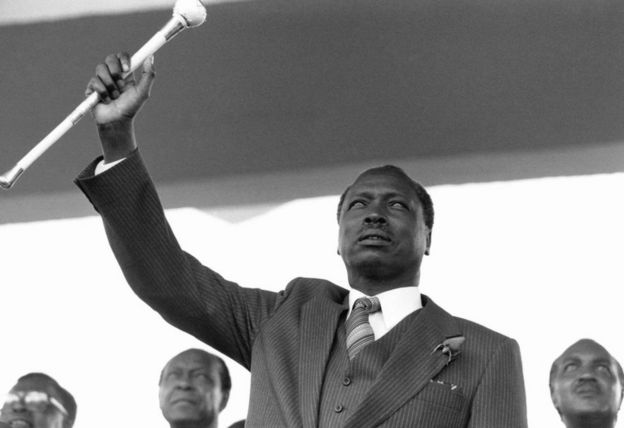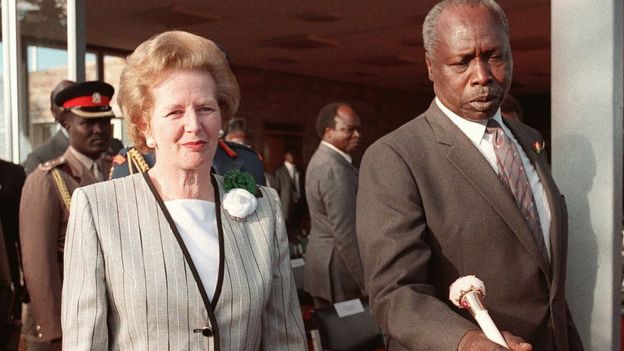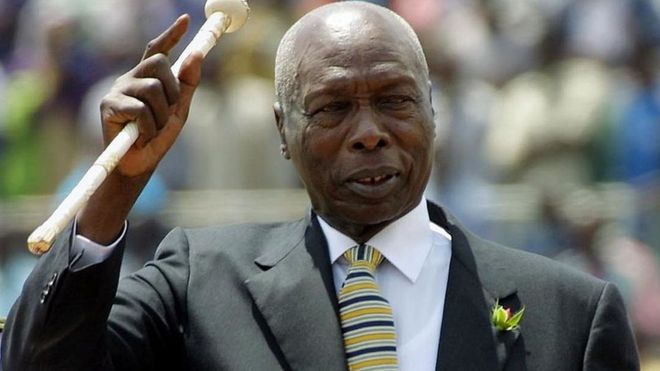Kenya’s former President Daniel arap Moi has died at the age of 95.
He was seen by his critics as an authoritarian ruler who held on to power for 24 years, but his allies credited him for maintaining stability in the East African state.
Moi stepped down in 2002 after being constitutionally barred from running for a further term.
He was the country’s second president taking over after the death of Jomo Kenyatta in 1978.
In office, he was feared and admired in equal measure, and was accused of human rights abuses. Moi introduced multi-party politics in 1991, but subsequent elections were marred by rigging.
He was a more populist politician than Kenya’s first President Jomo Kenyatta and his legacy was tarnished by economic stagnation and accusations of corruption.

Moi, born on 2 September 1924 into a farming family, was a close ally of Kenyatta in the run-up to Kenyan independence in 1963.
He served as home affairs minister from 1964 and in 1967 he became the country’s vice-president.
Until the introduction of multi-party politics, Moi was unopposed as president, at elections in 1983 and 1988.

President Moi, pictured in Nairobi with then British Prime Minister Margaret Thatcher in 1988, appeared to dominate almost every aspect of life in Kenya
He was elected for a further two terms in 1992 and 1997 in polls that were widely regarded as rigged.
While president, he appeared to dominate almost every aspect of life, an impression aided by the state-run media.
His critics see his rule as the lost years, a time when Kenya was bedevilled by corruption, ethnic conflicts and human rights abuses.
They say he stymied economic progress by personalising the state, using government resources to award loyalists and withholding them to punish those who did not toe the line.
For example, roads and factories were seen as gifts to be given and rewards for communities if their top politicians worked with the ruling party, Kanu. This entrenched a culture of political patronage that has become part of Kenyan politics.
But defenders of Moi’s legacy point to his often-repeated line that he kept Kenya “peaceful”, while several African countries were experiencing strife.

Remembering Moi
Dickens Olewe, BBC News Online
The debate about how Kenyans will mourn Moi began long before he succumbed to his recent health problems.
The 95-year-old was loved and loathed in equal measure; his supporters will mourn him as a patriot and a consummate politician who they fondly nicknamed “professor of politics”, but others will choose to remember him as a brutal dictator.
Defenders of Moi will point to his often-repeated line that he kept Kenya “safe and peaceful”, noting that while several African countries were imploding into civil war the country remained stable.
Whichever version of Moi is favoured, the legacy of one of the last surviving independence leaders lives on as many of today’s top politicians, including President Uhuru Kenyatta and his deputy, William Ruto, were protégés of the second president.
Kenya has changed a lot since Moi left office but his influence can still be felt.
Source: BBC

